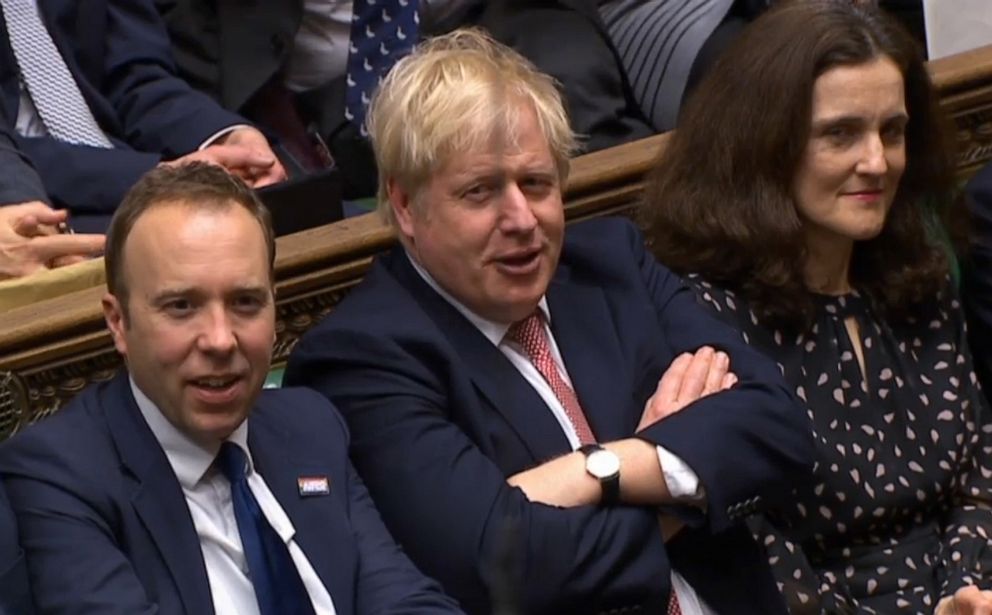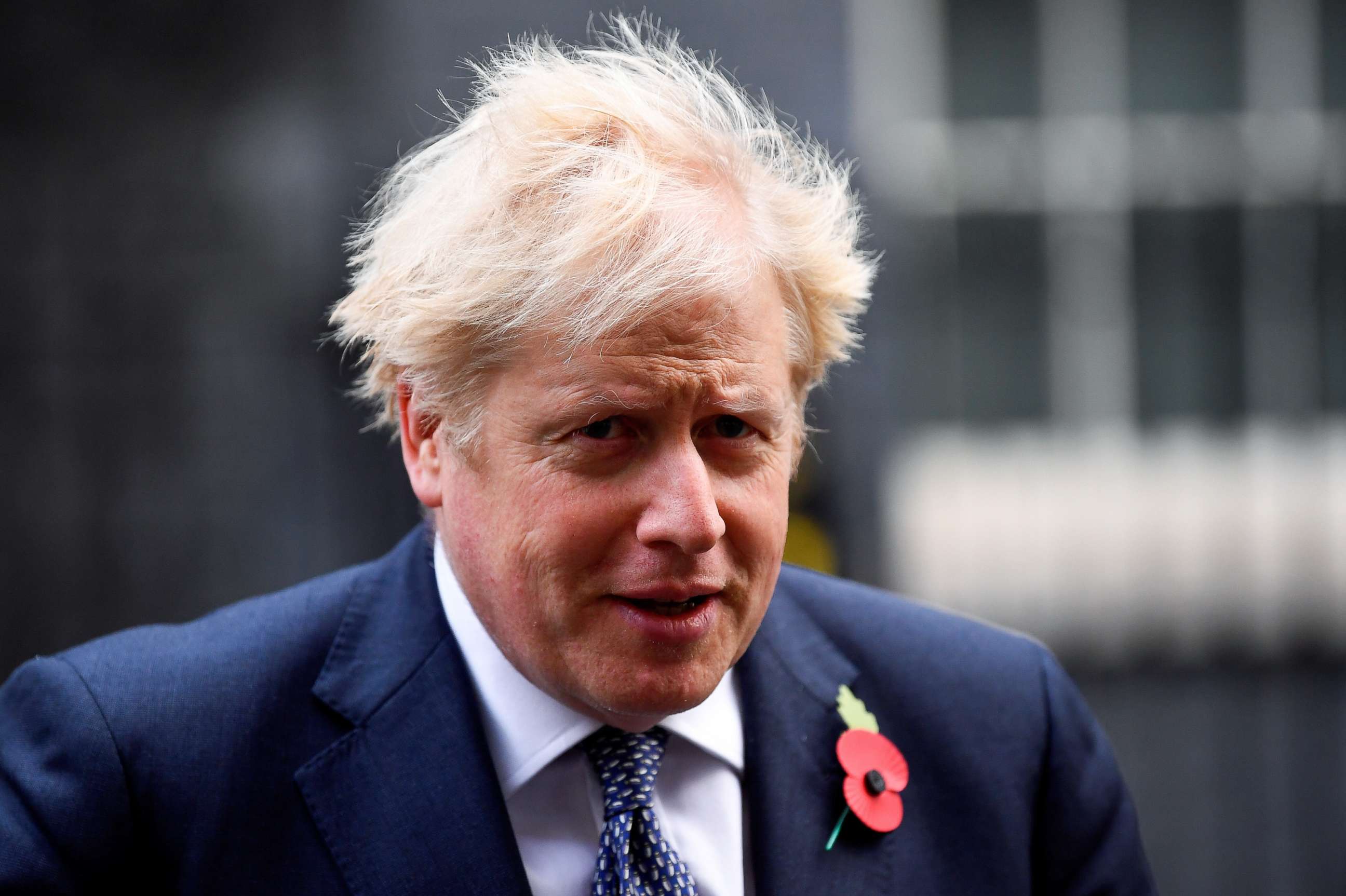Boris Johnson to self-quarantine after exposure to member of Parliament with COVID-19
The U.K. prime minister was hospitalized for the virus in April.
U.K. Prime Minister Boris Johnson, who was hospitalized in the spring for the coronavirus, is self-isolating after he was exposed to a Member of Parliament who contracted the virus, British officials announced Sunday.
Johnson met on Thursday with a group of members of Parliament that included Lee Anderson, who later tested positive, according to a spokesperson from Downing Street. The meeting lasted for 35 minutes, according to the spokesperson.
The National Health Service's Test and Trace team informed Johnson about Anderson's condition and instructed him to self-isolate, according to the spokesperson. Johnson is not showing any symptoms and is doing well, the spokesperson said in a statement.

"He will carry on working from Downing Street, including leading the Government’s response to the coronavirus pandemic," the statement said.
In April, Johnson contracted the virus and was hospitalized for nearly a week. He spent three days in the ICU.

The UK has 1,369,318 total coronavirus cases and 51,934 related fatalities, according to the British government. The seven-day average of new cases has risen dramatically since the beginning of September, going from 2,182 on Sept. 1 to 23,672 on Nov. 6, according to health data. On Nov. 2, Britain recorded a record number of new cases, 31,475, the British government said.
The seven-day average of COVID-19 deaths has also risen over that period, going from seven on Sept. 1 to 364 on Nov. 6, according to the data. On Nov. 6, the nation recorded 367 new deaths, the highest number of fatalities since May,.
What to know about Coronavirus:
- How it started and how to protect yourself: Coronavirus explained
- What to do if you have symptoms: Coronavirus symptoms
- Tracking the spread in the US and Worldwide: Coronavirus map
ABC News' Zoe Magee contributed to this report.




